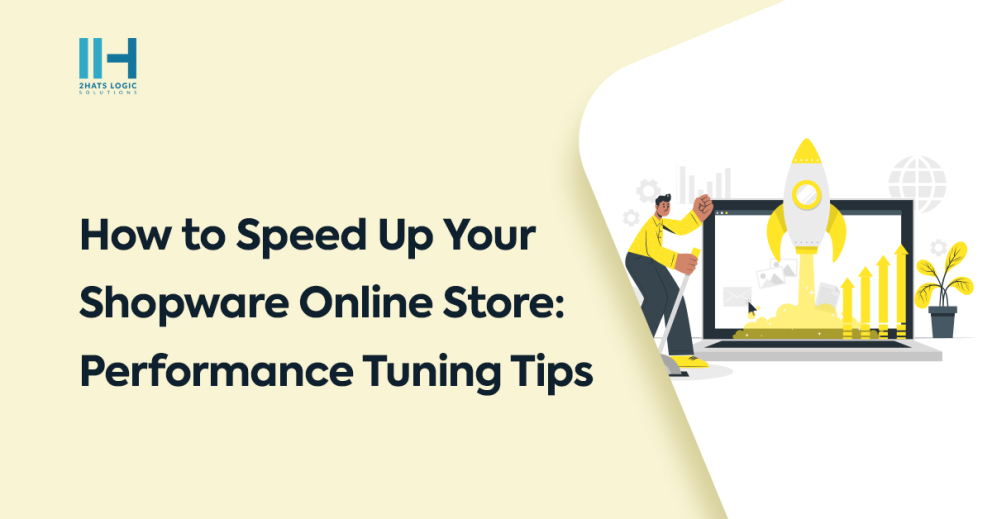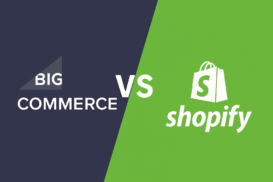Greetings! I'm Aneesh Sreedharan, CEO of 2Hats Logic Solutions. At 2Hats Logic Solutions, we are dedicated to providing technical expertise and resolving your concerns in the world of technology. Our blog page serves as a resource where we share insights and experiences, offering valuable perspectives on your queries.

Time is a major factor in the e-commerce rat race, every second counts. A slow website can mean the difference between a customer making a purchase and clicking away in frustration. That’s why Shopware store owners should check with Shopware services and must prioritize performance tuning.
Let’s find out why it is important to optimise your Shopware store for better functioning.
What is performance tuning?
It’s the art of optimising your online store for speed, efficiency, and a flawless user experience. This includes everything from optimising images and codes to using a Content Delivery Network (CDN) to deliver content from servers closest to your customers.
Why is performance tuning important?
If your site doesn’t load within 3 seconds, 40% of shoppers won’t wait more than 3 seconds before abandoning an ecommerce site.
Improved user experience and customer experience
A fast website is a pleasant website. Shoppers are more likely to stick around and browse if your pages load quickly and function smoothly. The website should also provide a good customer experience like easy navigation from check-in to check-out.
Higher conversion rates
Studies have shown that a 1-second delay in page load time can result in a 7% decrease in conversions. By tuning your store, you can keep customers engaged and moving through the checkout process.
Better SEO
Google considers website speed in search rankings. Faster sites rank higher, driving more organic traffic. With mobile commerce rising, Shopware 6 mobile optimization is crucial for broader reach and improved search engine ranking.
In this blog post, we’ll provide you with actionable tips and strategies for speeding up your Shopware store.
Conducting a Performance Analysis
Begin by exploring the various tools available for conducting a performance analysis on your Shopware store. Shopware provides built-in tools, and there are also third-party analytics tools for Shopware 6 that offer comprehensive insights into your store’s performance. Familiarize yourself with these tools and choose the best suits your needs.
Key Metrics to Measure
Page Load Times
Understand the time it takes for your web pages to load. Evaluate your page speed with tools like PageSpeed Insights to gain valuable insights into the loading times of your web pages. Achieving optimal page load time is important for delivering a positive and ideal user experience.
Server Response Times
Evaluate the time it takes for your server to respond to user requests. Faster server response times directly impact the overall speed of your Shopware store.
Resource Utilization
Monitor the utilization of resources such as CPU, memory, and bandwidth. Identifying resource bottlenecks is crucial for maintaining optimal performance.
Regular Performance Monitoring
Regular performance monitoring is vital for sustained success in maintaining a high-performing Shopware store. Establish a schedule for routine checks to ensure your website meets performance expectations. By proactively monitoring your store’s performance, you can swiftly detect any issues that may arise and implement necessary optimizations before they impact the overall user experience.
Actionable Steps for Performance Improvement
Consider optimising images to reduce page load times, leverage browser caching for faster resource retrieval, and evaluate the feasibility of upgrading hosting resources for enhanced overall performance. Encourage a proactive approach to addressing identified issues, ensuring that your online shopping environment remains optimal and provides a seamless experience for your customers. You can even use performance analysis tools like Performance Monitoring für Shopware 6 to get the overall information about the store.
Third-Party Plugins and Themes
Third-party plugins and themes can significantly influence the performance of your Shopware store. While these extensions add functionality and aesthetics, they may also introduce additional scripts and features that could affect page load times and overall responsiveness. It’s crucial to strike a balance between functionality and performance.
Evaluation and Optimization
To maintain optimal Shopware performance, it’s recommended to regularly evaluate and optimize the use of third-party plugins. Ensure that all installed plugins are compatible with the latest Shopware version to benefit from improvements in performance and security. Disable or replace any plugins that are not actively contributing to your store’s functionality to reduce unnecessary overhead.
Compatibility with the Latest Shopware Version
Plugins and themes should always be kept up-to-date to align with the latest advancements and optimizations in Shopware 6. An outdated plugin may not only compromise performance but could also introduce security vulnerabilities. Regularly check for updates and ensure that your chosen extensions are compatible with the current Shopware version. Additionally, if you are in the process of upgrading from Shopware 5 to 6, it’s crucial to ensure that your plugins and themes are compatible with the new version to facilitate a smooth transition.
Lightweight and Well-Coded Themes
When selecting themes for your Shopware store, prioritize lightweight and well-coded options. These themes are designed to minimize the use of resources, resulting in improved loading times and a smoother user experience. Opting for top Shopware 6 themes with efficient coding practices ensures your store remains responsive even when multiple features are in use.
Testing and Monitoring
Continuous testing and monitoring are crucial for maintaining and improving the performance of your Shopware store. By regularly assessing various aspects, you can identify bottlenecks, anticipate issues, and implement optimizations promptly, ensuring a consistently high-performing online presence.
Recommended Tools for Testing
Load Testing Tools
Evaluate the capacity of your Shopware store by employing load testing tools like Apache JMeter or Loader.io. Understand how your website performs under different traffic conditions to identify potential performance bottlenecks.
A/B Testing Tools
Enhance user experience and optimize conversions with A/B testing tools such as Google Optimize or Optimizely. Experiment with different versions of your pages to identify the most effective design and content for improved engagement.
User Behavior Monitoring
Gain valuable insights into user interactions using tools like Hotjar or Google Analytics. Monitoring user behaviour helps you understand how visitors navigate your site, allowing for targeted optimizations based on real user data.
Conclusion
In conclusion, prioritizing performance tuning for your Shopware store is crucial in maintaining the best performance of an ecommerce store. Optimizing load times, server responses, and resource utilization directly impacts user experience, conversion rates, and SEO rankings. Regular monitoring, actionable steps for improvement, and careful management of third-party extensions contribute to sustained high performance. By investing in these strategies, you not only enhance the overall shopping experience but also position your store for long-term success in the digital marketplace. To achieve this, consider partnering with experienced Shopware services providers who can offer comprehensive solutions.
Don’t delay optimizing the performance of your Shopware store. Get in touch with a qualified Shopware solutions service right now to begin enjoying the advantages of a quicker, more effective e-commerce platform.
FAQ
Why is performance tuning important for my Shopware store?
Performance tuning is crucial for ensuring your Shopware store loads quickly and functions smoothly. Slow websites can lead to customer frustration and abandonment. By optimizing your store, you improve user experience, increase conversion rates, and enhance SEO rankings.
What are the key metrics to measure during a performance analysis?
Important metrics include Page Load Times, Server Response Times, and Resource Utilization. These metrics provide insights into your store's speed, server efficiency, and resource management, helping you identify areas for improvement.
How can I address performance issues related to third-party plugins and themes?
Regularly evaluate and optimize third-party plugins. Ensure they are compatible with the latest Shopware version and contribute positively to functionality. Lightweight and well-coded themes are recommended to minimize resource usage and maintain a responsive store.
Why should I keep plugins and themes up-to-date in Shopware?
Keeping plugins and themes up-to-date ensures compatibility with the latest Shopware version, incorporating advancements and security updates. Outdated plugins may compromise performance and introduce vulnerabilities, affecting the overall stability of your store.
What tools can I use for testing and monitoring the performance of my Shopware store?
Tools like Apache JMeter or Loader.io can evaluate your store's capacity under different traffic conditions for load testing. A/B testing tools like Google Optimize or Optimizely help optimize user experience. User behaviour monitoring tools such as Hotjar or Google Analytics provide insights into visitor interactions for targeted optimizations.

Related Articles






